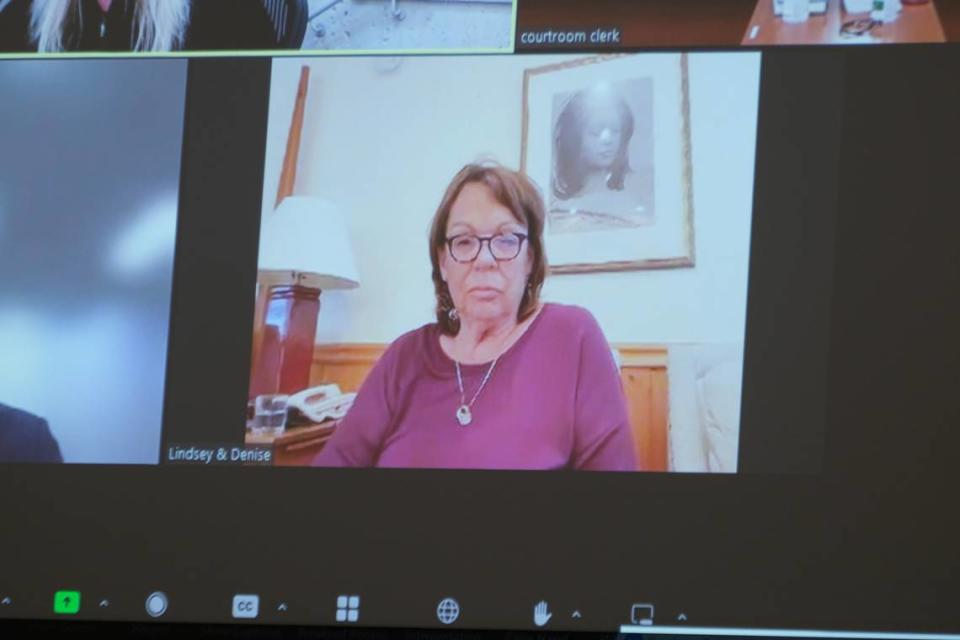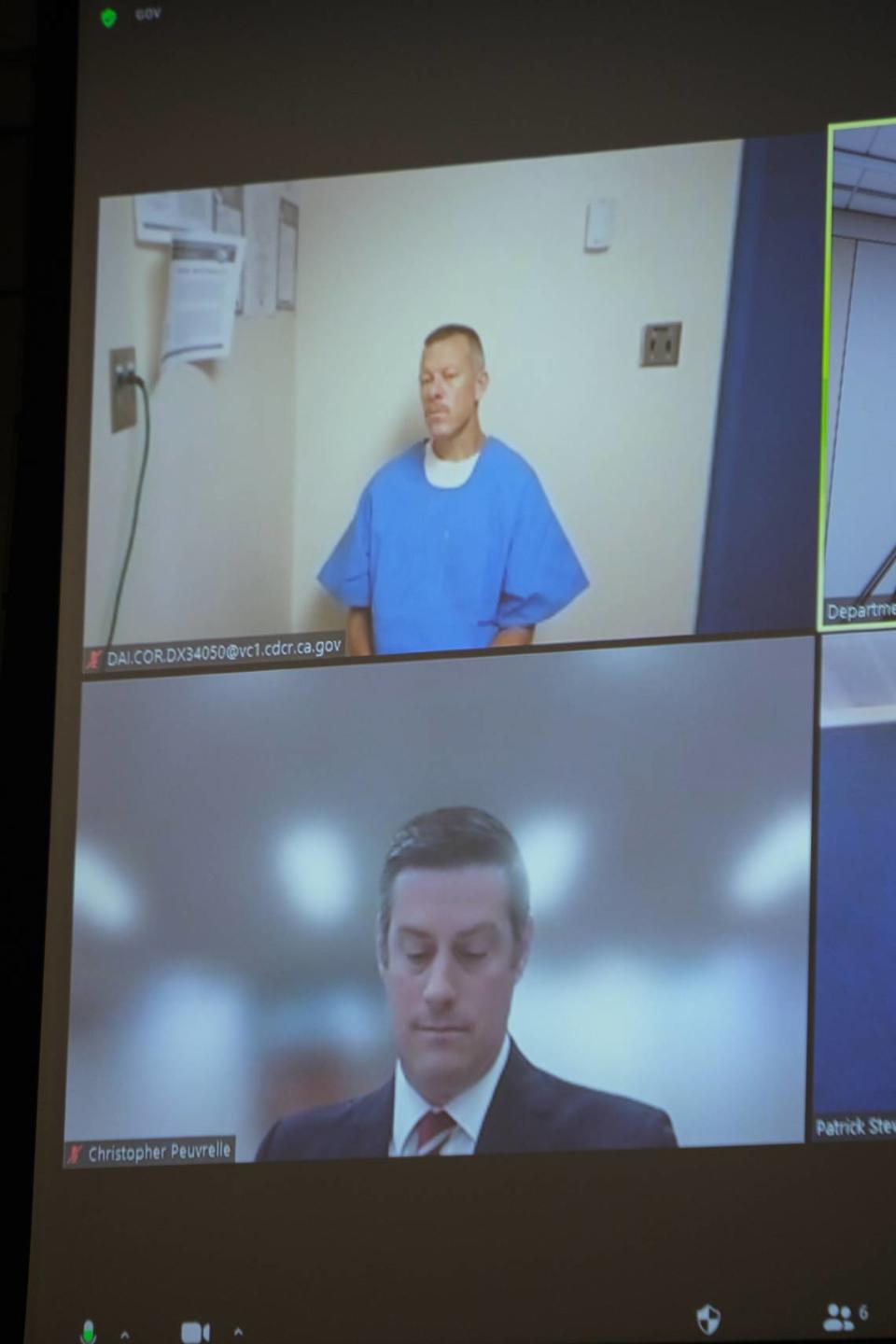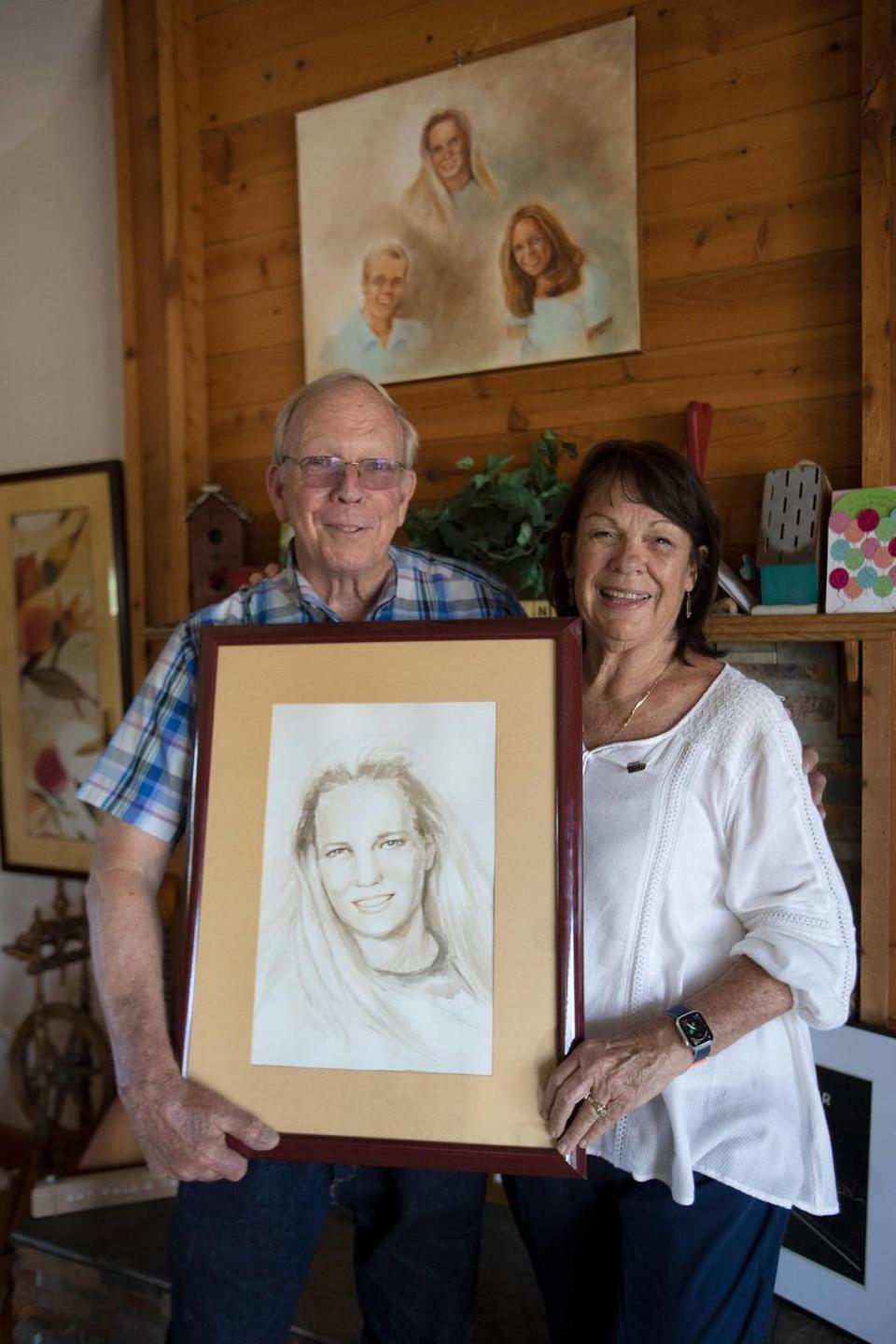Paul Flores must pay Kristin Smart family’s expenses, judge rules. How much does he owe?
A Monterey County judge ruled Paul Flores must pay roughly $351,000 to Kristin Smart’s family for the almost three decades’ worth of expenses they incurred due to her murder — though with interest, he could end up on the hook for significantly more.
The ruling comes after an emotional restitution hearing Wednesday, where the Smart family shared itemized reports of their expenses since Smart first disappeared from Cal Poly in 1996.
“It’s demeaning to Kristin’s memory to measure our loss in finances,” Denise Smart told The Tribune after Wednesday’s hearing. “Our loss is Kristin.”
Five family members requested about $361,000 in restitution for expenses related to Smart’s disappearance, but all said their amounts were conservative estimates. Monterey County Superior Court Judge Jennifer O’Keefe ruled the total the family is entitled to under law is about $351,159.
O’Keefe also ordered Flores to pay an annual interest of 10% on those expenses accumulated throughout the 28-year court process — though it was not immediately clear how that would be applied.
With compounding interest, Flores could have to pay a total of about $1.58 million, according to a Tribune estimate, though it could be up to $5 million depending on when interest would be applied on each of the expenses.
With simple interest, Flores could be obligated to pay between about $757,160 to $1.33 million, according to a Tribune estimate.
On Monday, neither representation for Flores nor the prosecution were clear on how the interest O’Keefe ordered would actually be applied.

Restitution is a court order that requires those convicted of crimes to pay victims compensation for the expenses caused. It is a required part of the criminal court process in California, and it is ordered regardless of a defendant’s ability to pay.
The California Department of Corrections and Rehabilitation automatically collects 50% of prison wages and money deposited in convicts’ trust accounts in order to pay restitution until it is paid in full.
Incarcerated people can also make voluntary payments toward their restitution. If someone is released from prison and still owes restitution to their victims, the debt will be referred to the California Franchise Tax Board for collection.
On Wednesday, Denise told The Tribune the family offered to drop restitution entirely in exchange for information leading to her daughter’s remains, but Mesick told The Tribune the defense did not know where her remains are.
Flores maintains his innocence, he said.

Restitution cannot account for psychological damage, judge says
O’Keefe told the family she can only legally order restitution for physical expenses incurred since Smart’s murder in 1996.
“The court is not permitted to provide restitution for the psychological damage that has no doubt occurred throughout these proceedings and throughout the many, many years that their family has not had Kristen in their lives,” she said in court.
O’Keefe ruled that all lost wages reported by the family members were approved to be a part of restitution.
This included paid time off used by Smart’s siblings Matthew Smart and Lindsey Smart Stewart, and Lindsey’s husband, Patrick Stewart.
“In each case, the paid time off that was used was earned as part of their compensation from their employment. It was time that they could later cash out for compensation had it not been used, or time that they could have used in the future for other purposes,” O’Keefe said. “The use of their paid time off was compensation they lost as a direct result of the defendant’s conduct.”
In total before interest, Flores was ordered to pay $8,361.73 to Lindsey Smart Stewart, $10,773.54 to Patrick Stewart, $29,984 to Matthew Smart, $36,981.50 to Denise Smart and $40,000 to Stan Smart for lost wages.
The highest total in restitution Flores was ordered to pay went to the Smart family’s travel expenses, totaling nearly $170,000 between the five family members.
Flores also has to reimburse the family for the billboards they put up in efforts to gain tips leading to the recovery of Smart.
Four billboards — one in 1996, two in 1998 and one in 2009 — totaled to $14,960.
The 2011 celebration of life was also included in restitution. The event, which was held after she was declared legally deceased in 2002, was in lieu of a funeral because her remains still have not been recovered, O’Keefe noted.
She ordered Flores to pay $10,800 for the ceremony.
Restitution is an “ongoing obligation,” O’Keefe told the family, and added that if they wish to provide evidence of additional expenses incurred they can submit it to the court for review in order to add it to Flores’ bill.
Following her ruling, O’Keefe told the family she hoped this final court hearing brought comfort to the Smart family.
“This has been a very challenging and traumatic event for all of the family members who have been involved,” she said. “I hope this this gives everyone some closure.”

Family continues to hold out hope for Kristin Smart’s remains to be found
The end of court doesn’t bring closure to Stan and Denise Smart, they told The Tribune following the ruling.
“We don’t have our daughter,” Stan Smart said. “I’ll never see her get married or have children or grandchildren.”
He said he feels disappointed — not with the judge — but with how the criminal justice system has worked for his family over the past 28 years.
Both he and his wife just want to lay their daughter to rest and give her a proper burial, he said.
Denise Smart and Lindsey Smart Stewart both told The Tribune the family is still willing to drop restitution in exchange for information that leads to Smart’s remains — an offer denied by Flores’ attorney, Harold Mesick, during restitution negotiations.
For Denise Smart, collecting restitution feels like a moot point: She said Flores’ prison wages will not be enough to pay back the restitution in full.
But she said she hoped each time half of Flores’ prison wages is allocated to the Smarts, he will be reminded of what he did to her daughter — and perhaps motivated to finally give up her location.

